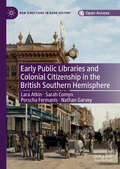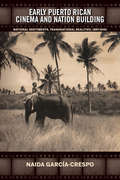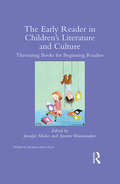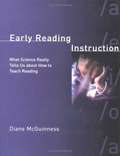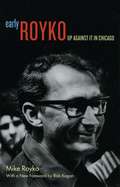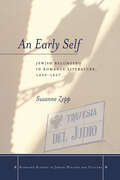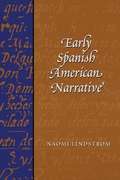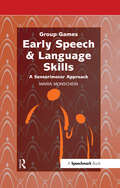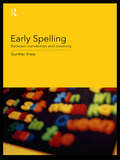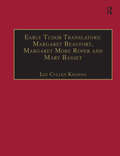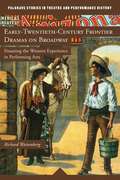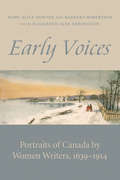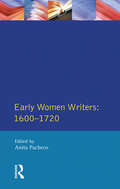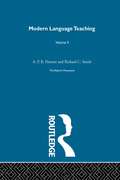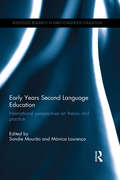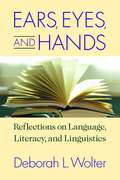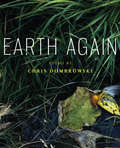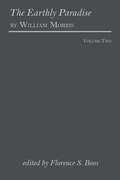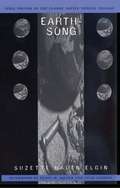- Table View
- List View
Early Public Libraries and Colonial Citizenship in the British Southern Hemisphere (New Directions in Book History)
by Lara Atkin Sarah Comyn Porscha Fermanis Nathan GarveyThis open access Pivot book is a comparative study of six early colonial public libraries in nineteenth-century Australia, South Africa, and Southeast Asia. Drawing on networked conceptualisations of empire, transnational frameworks, and ‘new imperial history’ paradigms that privilege imbricated colonial and metropolitan ‘intercultures’, it looks at the neglected role of public libraries in shaping a programme of Anglophone civic education, scientific knowledge creation, and modernisation in the British southern hemisphere. The book’s six chapters analyse institutional models and precedents, reading publics and types, book holdings and catalogues, and regional scientific networks in order to demonstrate the significance of these libraries for the construction of colonial identity, citizenship, and national self-government as well as charting their influence in shaping perceptions of social class, gender, and race. Using primary source material from the recently completed ‘Book Catalogues of the Colonial Southern Hemisphere’ digital archive, the book argues that public libraries played a formative role in colonial public discourse, contributing to broader debates on imperial citizenship and nation-statehood across different geographic, cultural, and linguistic borders.
Early Puerto Rican Cinema and Nation Building: National Sentiments, Transnational Realities, 1897-1940 (Bucknell Studies in Latin American Literature and Theory)
by Naida García-CrespoEarly Puerto Rican Cinema and Nation Building focuses on the processes of Puerto Rican national identity formation as seen through the historical development of cinema on the island between 1897 and 1940. Anchoring her work in archival sources in film technology, economy, and education, Naida García-Crespo argues that Puerto Rico’s position as a stateless nation allows for a fresh understanding of national cinema based on perceptions of productive cultural contributions rather than on citizenship or state structures. This book aims to contribute to recently expanding discussions of cultural networks by analyzing how Puerto Rican cinema navigates the problems arising from the connection and/or disjunction between nation and state. The author argues that Puerto Rico’s position as a stateless nation puts pressure on traditional conceptions of national cinema, which tend to rely on assumptions of state support or a bounded nation-state. She also contends that the cultural and business practices associated with early cinema reveal that transnationalism is an integral part of national identities and their development. García-Crespo shows throughout this book that the development and circulation of cinema in Puerto Rico illustrate how the “national” is built from transnational connections. Published by Bucknell University Press. Distributed worldwide by Rutgers University Press.
The Early Reader in Children's Literature and Culture: Theorizing Books for Beginning Readers (Children's Literature and Culture)
by Jennifer Miskec Annette WannamakerThis is the first volume to consider the popular literary category of Early Readers – books written and designed for children who are just beginning to read independently. It argues that Early Readers deserve more scholarly attention and careful thought because they are, for many younger readers, their first opportunity to engage with a work of literature on their own, to feel a sense of mastery over a text, and to experience pleasure from the act of reading independently. Using interdisciplinary approaches that draw upon and synthesize research being done in education, child psychology, sociology, cultural studies, and children’s literature, the volume visits Early Readers from a variety of angles: as teaching tools; as cultural artifacts that shape cultural and individual subjectivity; as mass produced products sold to a niche market of parents, educators, and young children; and as aesthetic objects, works of literature and art with specific conventions. Examining the reasons such books are so popular with young readers, as well as the reasons that some adults challenge and censor them, the volume considers the ways Early Readers contribute to the construction of younger children as readers, thinkers, consumers, and as gendered, raced, classed subjects. It also addresses children’s texts that have been translated and sold around the globe, examining them as part of an increasingly transnational children’s media culture that may add to or supplant regional, ethnic, and national children’s literatures and cultures. While this collection focuses mostly on books written in English and often aimed at children living in the US, it is important to acknowledge that these Early Readers are a major US cultural export, influencing the reading habits and development of children across the globe.
Early Reading Comprehension in Varied Subject Matter: Book C
by Jane ErvinThis popular series offers nonfiction reading passages with comprehension questions on a variety of subjects for students in second grade through junior high school and beyond.
Early Reading Comprehension in Varied Subject Matter: Book A
by Jane ErvinThis series has a consistent format that allows students in the same class to use different levels. It builds reading comprehension skills, contextual vocabulary skills, and provides cross-curricular reading practice via content-area topics.
Early Reading Comprehension in Varied Subject Matter: Book B
by Jane ErvinThis series has a consistent format that allows students in the same class to use different levels. It builds reading comprehension skills, contextual vocabulary skills, and provides cross-curricular reading practice via content-area topics.
Early Reading Instruction: What Science Really Tells Us About How To Teach Reading
by Diane McguinnessEarly Reading Instruction is a comprehensive analysis of the research evidence from early writing systems to computer models of reading. In this book, Diane McGuinness provides an innovative solution to the "reading war"--the century-old debate over the efficacy of phonics (sound-based) versus whole-word (meaning- based) methods. She has developed a prototype--a set of elements that are critical to the success of a reading method. McGuinness shows that all writing systems, without exception, are based on a sound unit in the language. This fact, and other findings by paleographers, provides a platform for the prototype. Other elements of the prototype are based on modern research. For example, observational studies in the classroom show that time spent on three activities strongly predicts reading success: learning phoneme/symbol correspondences, practice at blending and segmenting phonemes in words, and copying/writing words, phrases, and sentences. Most so-called literacy activities have no effect, and some, like sight word memorization, have a strongly negative effect. The National Reading Panel (2000) summarized the research on reading methods after screening out thousands of studies that failed to meet minimum scientific standards. In an in-depth analysis of this evidence, McGuinness shows that the most successful methods (children reading a year or more above age norms) include all the elements in the prototype. Finally, she argues, because phonics-type methods are consistently shown to be superior to whole-word methods in studies dating back to the 1960s, it makes no sense to continue this line of research. The most urgent question for future research is how to get the most effective phonics programs into the classroom.
Early Royko: Up Against It in Chicago
by Mike RoykoCombining the incisive pen of a newspaperman and the compassionate soul of a poet, Mike Royko became a Chicago institution—in Jimmy Breslin’s words, "the best journalist of his time." Early Royko: Up Against It in Chicago will restore to print the legendary columnist’s earliest writings, which chronicle 1960s Chicago with the moral vision, ironic sense, and razor-sharp voice that would remain Royko’s trademark. This collection of early columns from the Chicago Daily News ranges from witty social commentary to politically astute satire. Some of the pieces are falling-down funny and others are tenderly nostalgic, but all display Royko’s unrivaled skill at using humor to tell truth to power. From machine politicians and gangsters to professional athletes, from well-heeled Chicagoans to down-and-out hoodlums, no one escapes Royko’s penetrating gaze—and resounding judgment. Early Royko features a memorable collection of characters, including such well-known figures as Hugh Hefner, Mayor Richard J. Daley, and Dr. Martin Luther King. But these boldfaced names are juxtaposed with Royko’s beloved lesser knowns from the streets of Chicago: Mrs. Peak, Sylvester "Two-Gun Pete" Washington, and Fats Boylermaker, who gained fame for leaning against a corner light pole from 2 a.m. Saturday until noon Sunday, when his neighborhood tavern reopened for business. Accompanied by a foreword from Rick Kogan, this new edition will delight Royko’s most ardent fans and capture the hearts of a new generation of readers. As Kogan writes, Early Royko "will remind us how a remarkable relationship began—Chicago and Royko, Royko and Chicago—and how it endures."
An Early Self: Jewish Belonging in Romance Literature, 1499-1627
by translated by Insa Kummer Susanne ZeppWhat role has Jewish intellectual culture played in the development of modern Romance literature? Susanne Zepp seeks to answer this question through an examination of five influential early modern texts written between 1499 and 1627: Fernando de Rojas's La Celestina, Leone Ebreo's Dialoghi d'amore, the anonymous tale Lazarillo de Tormes (the first picaresque novel), Montaigne's Essais, and the poetical renditions of the Bible by João Pinto Delgado. Forced to straddle two cultures and religions, these Iberian conversos (Jews who converted to Catholicism) prefigured the subjectivity which would come to characterize modernity. As "New Christians" in an intolerant world, these thinkers worked within the tensions of their historical context to question norms and dogmas. In the past, scholars have focused on the Jewish origins of such major figures in literature and philosophy. Through close readings of these texts, Zepp moves the debate away from the narrow question of the authors' origins to focus on the innovative ways these authors subverted and transcended traditional genres. She interprets the changes that took place in various literary genres and works of the period within the broader historical context of the sixteenth and seventeenth centuries, demonstrating the extent to which the development of early modern subjective consciousness and its expression in literary works can be explained in part as a universalization of originally Jewish experiences.
Early Spanish American Narrative
by Naomi LindstromThe world discovered Latin American literature in the twentieth century, but the roots of this rich literary tradition reach back beyond Columbus's discovery of the New World. The great pre-Hispanic civilizations composed narrative accounts of the acts of gods and kings. Conquistadors and friars, as well as their Amerindian subjects, recorded the clash of cultures that followed the Spanish conquest. Three hundred years of colonization and the struggle for independence gave rise to a diverse body of literature--including the novel, which flourished in the second half of the nineteenth century. To give everyone interested in contemporary Spanish American fiction a broad understanding of its literary antecedents, this book offers an authoritative survey of four centuries of Spanish American narrative. Naomi Lindstrom begins with Amerindian narratives and moves forward chronologically through the conquest and colonial eras, the wars for independence, and the nineteenth century. She focuses on the trends and movements that characterized the development of prose narrative in Spanish America, with incisive discussions of representative works from each era. Her inclusion of women and Amerindian authors who have been downplayed in other survey works, as well as her overview of recent critical assessments of early Spanish American narratives, makes this book especially useful for college students and professors.
Early Speech & Language Skills: A Sensorimotor Approach (Group Games Ser.)
by Maria Monschein Lilo SeelosFull of practical ideas that can be easily implemented with minimal preparation, this book contains a wealth of games and activities for developing language with young children. Following a multi-sensory approach, the games focus on having fun and working on speech language difficulties without having to concentrate directly on speaking. The games are organised around the school year and are themed according to which sense they specifically aim to develop. Most games can be carried out with little preparation, are easily adaptable and can be differentiated according to different children's abilities. Includes: Sense of touch games; Games for proprioception; Balancing games; Listening games; Games for developing hand-eye coordination and finger-motor skills; Games for promoting oral motor skills; Games for working on individual problematic speech sounds.
Early Spelling: From Convention to Creativity
by Gunther KressIn his latest book, Gunther Kress explores how children learn to spell in the context of current concerns about early literacy. Using numerous examples of children's writing and drawing, Kress looks at children as 'makers of meaning' and explores their earliest ventures into writing.Kress covers problems such as dyslexia within today's educational system. Technological aids on spelling and writing such as spell-checkers and the effects of the increasing visualization of communication (computer, TV, film) are also discussed.
The Early Textual History of Lucretius' De rerum natura
by David ButterfieldThis is the first detailed analysis of the fate of Lucretius' De rerum natura from its beginnings in the 50s BC down to the creation of our earliest extant manuscripts during the Carolingian age. A detailed investigation of the knowledge of Lucretius' poem among writers throughout the Roman, and subsequently the medieval, worlds allows fresh insight into the work's readership and reception, and an assessment of the value of the indirect tradition for editing the poem. The first extended analysis of the 170+ subject headings (capitula) that intersperse the text reveals the close engagement of Roman readers. A fresh inspection and assignation of marginal hands in the poem's most important manuscript provides new evidence about the work of Carolingian correctors and the basis for a new Lucretian stemma codicum. Further clarification of the interrelationship of Renaissance manuscripts of Lucretius gives additional evidence of the poem's reception in fifteenth-century Italy.
Early Tudor Translators: Printed Writings 1500–1640: Series I, Part Two, Volume 4 (The Early Modern Englishwoman: A Facsimile Library of Essential Works & Printed Writings, 1500-1640: Series I, Part Two)
by Lee Cullen KhannaThis volume presents the texts of three Englishwomen remarkable both for writing and publishing their work during the first half of the sixteenth century. They also proved themselves nimble survivors of political and religious turmoil, Beaufort suffering for her Lancastrian connections and Roper and Basset for their Catholic allegiance. Significantly, these women turned to translation and to religious texts for their writing and publishing. The choice of devotional treatises authored by men not only mitigated the threat of the female pen, but more important to these writers, enabled them to perform spiritual and material work. Translation was considered to be the fruit of faith, contributing to the writer's own salvation and that of others, notably other women. Margaret Beaufort - Countess of Richmond and Derby, and mother of Henry VII. Lady Margaret's translation of the fourth book of Thomas à Kempis' De imitatione Christi was the first in English. Published in 1504 with Books 1-3, translated by William Atkinson. We reprint Pynson's 1517 edition notable for the clarity of its texts and woodcuts. Her translation from a French version of the anonymous text Speculum aureum animae peccatricis was published by Pynson in about 1506. It was reprinted three times after her death, twice in 1522 and once in 1526. We reprint the 1526 edition held by the British Library. Margaret More Roper was the eldest child of Sir Thomas More and was said to have been an outstanding scholar and writer. Her only published work is the translation reproduced here - Erasmus: A devout treatise upon the Pater noster, published c.1526 by T. Berthelet Mary Roper Clarke Basset was the daughter of Margaret Roper. She was a lady-in-waiting to Queen Mary and an expert in Latin and Greek. Reprinted here is a copy of her translation of her grandfather's final Tower work Of the sorrowe ... of Christ before hys taking from the 1557 edition of The English Workes of Sir Thomas More.
Early-Twentieth-Century Frontier Dramas on Broadway
by Richard WattenbergFrontier dramas were among the most popular and successful of early-twentieth-century Broadway type plays. The long runs of contemporary dramas not only indicate the popularity of these plays but also tell us that these plays offered views about the frontier that original audiences could and did embrace.
Early Vision
by Samuel Taylor Coleridge Richard HolmesRichard Holmes edits a collection of poems by Samuel Taylor Coleridge, a pioneer of English Romanticism.
Early Voices: Portraits of Canada by Women Writers, 1639-1914
by Mary Alice Downie Barbara Robertson Elizabeth Jane ErringtonThis selection of writings by 29 women, known and unknown, professional and amateur, presents a unique portrait of Canada through time and space, from the 17th to the early 20th century, from the Maritimes to British Columbia and the Far North. There is a range of voices from high-born wives of governors general, to an Icelandic immigrant and a fisherman’s wife in Labrador. A Loyalist wife and mother describes the first hard weather in New Brunswick, a seasick nun tells of a dangerous voyage out from France, a famous children’s writer writes home about the fun of canoeing, and a German general’s wife describes habitant customs. All demonstrate how women’s experiences not only shared, but helped shape this new country.
Early Women Writers: 1600 - 1720 (Longman Critical Readers)
by Anita PachecoThe last twenty years have witnessed the rediscovery of a large number of women writers of the early modern period. This process of recovery has had a major impact on early modern studies for, by beginning to restore women to the history of the period, it provides new insight into the formative years of the modern era.This collection amply demonstrates the diversity as well as the literary and historical significance of early women's writing. It brings together studies by an impressive range of critics, including Elaine Hobby, Catherine Gallagher, Jane Spencer and Laura Brown, and examines the major works of five of the most important women writers of the seventeenth and early eighteenth centuries: Mary Wroth, Katherine Philips, Margaret Cavendish, Aphra Behn and Anne Finch. The range of authors it covers, and the challenging critical work it presents, make Early Women Writers: 1600-1720 essential reading for students of feminist theory, Women's Studies and Cultural Studies, as well as for all those interested in the history and literature of the early modern period.
Early Years of Reform (Logos Studies in Language and Linguistics)
by A. P. R. Howatt Richard C. SmithThis volume forms part of a five volume set charting the progress of the nineteenth century movement, which was instrumental in establishing international guidelines for the teaching of modern languages. It was during this period that for the first time, co-operation between phoneticians and teachers culminated in the publication of works that were instrumental in establishing the 'applied linguistic' approach to language teaching in the twentieth century. For the first time, too, the new science of psychology influenced a scientific theory of second language acquisition. The Reform Movement attracted support across Europe, spurring the development of new professional associations and journals. In turn, the publication in these journals of reports of innovative practice contributed to a greater sense of autonomy and professionalism among modern language teachers, who had hitherto tended to live under the shadow of classical language teaching. The practical innovations and theoretical suggestions for the foreign language teaching, although rooted in the nineteenth century, still have relevance today.
Early Years Second Language Education: International perspectives on theory and practice (Routledge Research in Early Childhood Education)
by Mónica Lourenço Sandie MourãoThe age for early language learning has dropped dramatically in the past decade to include children under 6 years old, yet very little published research exists to support the implementation of such programmes. Drawing on a synthesis of theory, research and practice, this edited volume makes an innovative contribution to literature concerning language education for very young children. It explores language learning in a wide range of geographical contexts with reference to second and foreign language learning, bilingualism and plurilingualism with children under the age of 6 years old. Chapters present discussion around teacher education, policy-making, international case studies, school and home-based projects, code switching and language use, and methodologies and approaches. Early Years Second Language Education: International perspectives on theory and practice will be essential reading for researchers, academics, teacher trainers, and post-graduate students in the fields of early years education, foreign and second language education, language didactics and teacher education.
Ears, Eyes, and Hands: Reflections on Language, Literacy, and Linguistics
by Deborah L. WolterEars, Eyes, and Hands presents the author’s reflections on language, literacy, and linguistics that have been shaped by her deafness and by her work as an educator. In short, engaging narratives, Deborah L. Wolter exposes deeply entrenched attitudes and stereotypes regarding language, bringing to bear her own experiences as a deaf person as well as her interactions with children from varying backgrounds. Wolter reveals and rectifies the impact of deficit mindsets in the educational system regarding race, ethnicity, economic status, gender, and disability. As a literacy specialist, she works with students who fall through the cracks in a system that strives to embrace the diverse backgrounds and abilities found in the classroom. Her passion for engaging students and cultivating literacy shines in the stories she tells, which serve as parables that allow readers to evaluate their own attitudes and assumptions. Educators, parents, and community members will benefit from Wolter’s examination of sociolinguistics and language privilege as she identifies how ethnocentrism and ableism are contributing to negative educational outcomes for some students. With humor and warmth, she offers a path toward approaching language and listening as a gateway to connection and understanding, both inside the classroom and beyond.
Earth Again: Poems (Made In Michigan Writers Ser.)
by Chris DombrowskiThe second full-length collection from award-winning poet Chris Dombrowski, Earth Again transports readers to an imaginative world where identity is explored and expanded. With a mixture of long poems and shorter pieces, Dombrowski probes birth, death, sex, memory, and our blessed but treacherous engagement with the natural world. While he writes from a number of points of view and employs both male and female speakers, much of the collection's singular insight centers around masculine identity and being a husband and a father. Readers come away transformed, "like the land / gasping as it does each late winter evening when / the sky at tree line, nearly sapphiric, goes black," as these poems prove Dombrowski to be a truly original American voice. Comprised of three sections-each of which concludes with a long poem-Earth Again presents a range of narrative and emotions in dexterous rhythms, unexpected shifts, and unforgettable metaphors. Dombrowksi introduces readers to arresting images like "the parataxis of her ass," "cerulean, alchemical light," "Molly with the sun in her mouth," and "labyrinthine, lanky-stemmed, dew-magnified" leaves. These details combine with Dombrowski's note-perfect language, which alternates between the most colloquial and the most elevated of diction. Readers will be challenged to consider spirituality alongside Scooby-Doo Band-aids, and to meditate on death after the mower has chewed up a plastic dinosaur, as Dombrowski revels in exploring our connection to the environment and one another. Fans of Dombrowski's previous collection, By Cold Water (which was noted as a contemporary poetry bestseller by the Poetry Foundation in 2009), along with other poets and poetry lovers will appreciate the attention to detail and the imaginative intensity of the poems in Earth Again.
The Earthly Paradise by William Morris: A Poem
by William MorrisThis annotated critical edition is the first attempt to make Morris's 42,000-word verse sequence accessible to a modern audience.
Earthsong
by Suzette Haden Elgin Julie VedderIn Earthsong, the trilogy's long-awaited finale, the Aliens have abandoned Earth, taking their technologies with them and plunging the planet into economic and ecological disaster. Devastated, the women decide to take their failed Láadan project back underground, desperately seeking guidance from their long-dead foremothers. The women discover an ingenious solution to the problem of human violence and seek to spread their knowledge--but has their final solution come too late?
Earthworks Rising: Mound Building in Native Literature and Arts (Indigenous Americas)
by Chadwick AllenA necessary reexamination of Indigenous mounds, demonstrating their sustained vitality and vibrant futurity by centering Native voices Typically represented as unsolved mysteries or ruins of a tragic past, Indigenous mounds have long been marginalized and misunderstood. In Earthworks Rising, Chadwick Allen issues a compelling corrective, revealing a countertradition based in Indigenous worldviews. Alongside twentieth- and twenty-first-century Native writers, artists, and intellectuals, Allen rebuts colonial discourses and examines the multiple ways these remarkable structures continue to hold ancient knowledge and make new meaning—in the present and for the future.Earthworks Rising is organized to align with key functional categories for mounds (effigies, platforms, and burials) and with key concepts within mound-building cultures. From the Great Serpent Mound in Ohio to the mound metropolis Cahokia in Illinois to the generative Mother Mound in Mississippi, Allen takes readers deep into some of the most renowned earthworks. He draws on the insights of poets Allison Hedge Coke and Margaret Noodin, novelists LeAnne Howe and Phillip Carroll Morgan, and artists Monique Mojica and Alyssa Hinton, weaving in a personal history of earthwork encounters and productive conversation with fellow researchers.Spanning literature, art, performance, and built environments, Earthworks Rising engages Indigenous mounds as forms of &“land-writing&” and as conduits for connections across worlds and generations. Clear and compelling, it provokes greater understanding of the remarkable accomplishments of North America&’s diverse mound-building cultures over thousands of years and brings attention to new earthworks rising in the twenty-first century.
